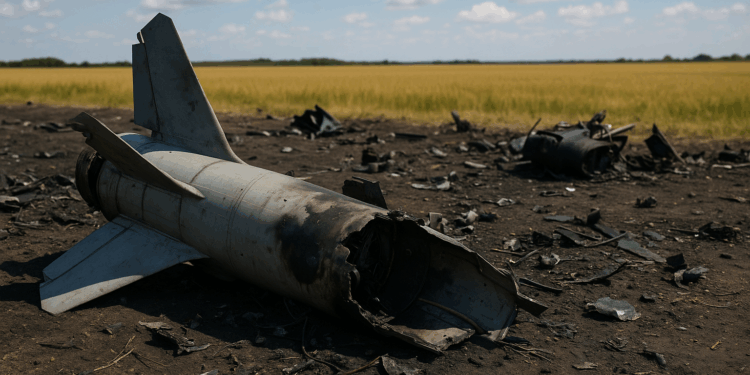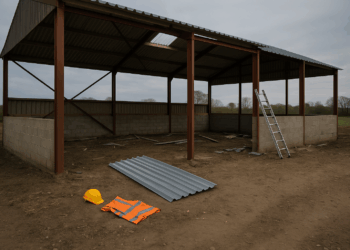Story Highlight
– UK lacks military defense plan, report warns.
– Defence committee criticizes reliance on US support.
– UK failing to meet NATO obligations significantly.
– Six new munitions factories planned to boost production.
– Defence spending to rise to 3% of GDP by 2034.
Full Story
The UK’s capacity to protect itself and its overseas territories from military threats is currently inadequate, a newly published report by Members of Parliament (MPs) has revealed. The findings from the defence committee highlight a troubling lack of readiness amidst increasing security risks in Europe, emphasizing that the nation is far from the level of preparedness needed to safeguard both itself and its allies.
The critical assessment underscores that the UK is failing to fulfill its obligations to the North Atlantic Treaty Organisation (Nato), and is falling considerably short of its self-proclaimed leadership role within the alliance. Released concurrently with the Ministry of Defence’s announcement regarding the potential establishment of six munitions factories in Britain, this report serves as a wake-up call regarding the country’s defence posture.
In June, Defence Secretary John Healey outlined ambitions for the UK to adopt a “war-fighting readiness” strategy, announcing a £1.5 billion fund intended to facilitate the construction of these new facilities, which will be built with the help of private contractors. However, after an extensive inquiry spanning 11 months, the committee’s report warns that the UK and its European partners are overly reliant on the United States and are inadequately funding their own defence mechanisms.
Tanmanjeet Singh Dhesi, chair of the defence committee, pointed to significant global tensions, particularly referencing “Putin’s brutal invasion of Ukraine,” alongside persistent disinformation campaigns and various airspace violations in Europe. He noted, “We cannot afford to bury our heads in the sand,” stressing the urgent need for enhanced defensive capabilities. Dhesi also remarked that concerns regarding the UK’s ability to protect itself have been consistently voiced during their investigations.
The committee’s recommendations include a directive for the government to expedite the pace of necessary industrial changes and to prioritise “readiness” as a central aim. Additionally, Europe’s pronounced dependence on the US for essential resources such as intelligence, satellite communications, troop logistics, and air-to-air refuelling was examined critically.
Particularly alarming is the report’s assertion that the UK has “next to nothing” in terms of integrated air and missile defence systems, highlighting recent incidents where drones have violated airspace over European nations, underscoring that emerging technologies pose threats not only to military targets but also to civilian populations. The report also expressed serious concerns about the sluggish advancements in civil defence and resilience, suggesting that the UK might not be complying with Nato Article 3, which mandates the development of collective capabilities to resist armed assaults.
Dhesi urged the government to enhance public communication regarding the current threat level and requisite expectations in the event of a conflict. He stated, “Wars aren’t won just by generals, but by the whole of the population getting behind the Armed Forces and playing our part,” underscoring the need for a collective strength in national defence.
The government had previously announced intentions to increase UK defence spending to 3% of GDP by 2034 at the latest, which reflects a commitment to enhancing military capabilities. In a forthcoming speech, Healey is set to elaborate on new initiatives, including the revival of domestic production of energetics—covering explosives, pyrotechnics, and propellants—after a long period of reliance on international sources.
The Ministry of Defence is evaluating a total of 13 sites throughout the UK for potential new munitions factories, specifying locations in Scotland, England, and Wales. Specifically, three sites have been proposed in Scotland—Dumfriesshire, Ayrshire, and Grangemouth in Stirlingshire. In England, eight sites include regions such as Teesside, Cumbria, Shropshire, Cheshire, Derbyshire, Essex, Worcestershire, and Hampshire. Furthermore, two sites in Wales are also being considered, situated in Monmouthshire and Milford Haven, Pembrokeshire.
The government’s aim is to have at least six of these factories operational by the next general election in 2029, with construction on the first expected to commence in the upcoming year. Additionally, Healey is likely to announce the initiation of two new drone manufacturing facilities located in Plymouth and Swindon.
Emphasizing the dual aim of economic and national security, Healey is expected to state, “We are making defence an engine for growth, unambiguously backing British jobs and British skills as we make the UK better ready to fight and better able to deter future conflicts. This is the path that delivers national and economic security.”
As the geopolitical landscape continues to evolve, the focus is now on how the UK will bolster its capabilities to respond effectively to threats, ensuring both its own security and that of its international allies. The government’s strategy moving forward will be closely scrutinised, as the urgency for a robust and independent defence framework becomes increasingly critical.
Our Thoughts
The critical report by the defence committee highlights significant failures in the UK’s military readiness and reliance on external support. To enhance safety and readiness, the UK could implement a proactive approach in compliance with the Health and Safety at Work Act 1974 by ensuring robust safety protocols are established for new munitions factories and production facilities.
Key lessons include the necessity for comprehensive risk assessments, proactive communication regarding threats, and a coordinated resilience strategy that engages the public. The lack of preparedness breaches the principles of ensuring health and safety in operations, potentially endangering not only armed forces but also civilian populations.
Additionally, by neglecting to meet NATO Article 3 obligations, the UK undermines the collective capacity to resist armed attacks, which falls within the remit of adequate risk management. Establishing stringent safety practices, timely audits of defence capabilities, and investment in training and resources are essential to prevent similar oversights in the future and ensure that all safety regulations are strictly adhered to.






















